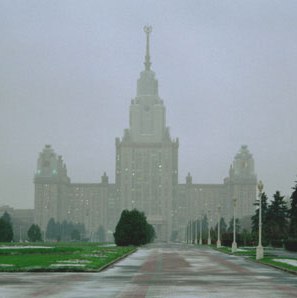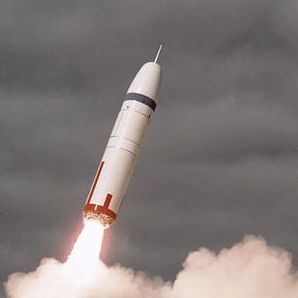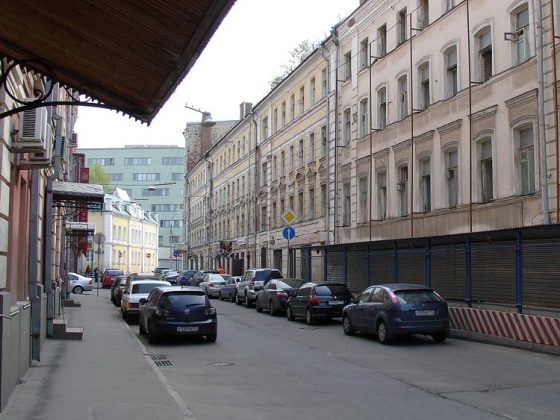(Co-authored by Andrey Makarychev and Boris Lanin). While the Kremlin habitually exhibits progress in the Russian higher education system by showcasing projects such as the Skolkovo Institute of Technology and mega-grants provided to foreign scientists, the real situation is far different. The country’s educational system is in a period of instability. There are massive and chaotic mergers of universities, new assessment criteria for university faculty and staff, and the controversial implementation of the pan-European Bologna system, to name a few.
The Russian educational machine has been reforming, but until now there have been no substantive public discussions about education (neither as a “service” or as a tool for societal modernization, among other topics). The government’s public discussion on the draft law “On Education” was limited to bureaucratic technicalities. The real stakeholders of this particular reform—the intellectual slice of society—were unhappy to be treated as an object rather than the subject of change.
As we are seeing increasingly robust attempts by professional educators to define themselves as a community based on certain normative backgrounds, we also see how the education system has been explicitly politicized by the Kremlin.
One heated issue involves sexual orientation. Some disciplinary techniques the Ministry of Education attempted to introduce involved drug testing of students and questionnaires about early sexual experiences, also became a matter of public scrutiny. A highly illustrative case of this type of biopolitical debate involved parents who demanded the firing of a Moscow school teacher who was seen at a meeting against anti-gay legislation.
A new turn in the debates on the imperfections of Russia’s educational system is the growing protestation of scientists and scholars against the large-scale discrediting of academic standards by the wide-spread use of plagiarism.
During the 2011-2012 election cycle, both Dmitry Medvedev and Vladimir Putin promised to rapidly increase the budget for defense and law enforcement, while lowering education to the list of budgetary burdens alongside the pension system. Underfunding and unbearable bureaucratic paperwork combined with the de-facto disappearance of self-governing university structures led to uneasy feelings of university faculty and staff.
The “On Education” law, which is to become effective September 2013, limits educational guarantees for Russian citizens and shrinks job opportunities for faculty and staff. Already, in late December 2012, Medvedev signed a “road map” that stipulated harsh funding cuts in education (up to 40%), increased the workload of university staff, and aimed to shut down many universities as allegedly ineffective.
It is only logical that all of this provoked multiple objection resolutions and open letters, some of which were signed by whole university segments (e.g., the Faculty of Philology at Moscow State University and the professors of Omsk State University). Moreover, the financial misconduct and exorbitant salaries of top university managers became a matter of public concern. Street protests in Moscow and other big cities in 2011-2013 were supported by large segments of both students and professors.
A major fuel to the fire has been the so-called “Dissergate,” a series of scandalous affairs about fraudulent dissertations. University educators themselves started investigations into these matters and led public campaigns against such wrongdoings (often using social media) that made the state react. The most widely covered cases were the firing of a MGIMO professor who faked his U.S. diploma and professor from Moscow State University whose plagiarism was clear and publicly available. The very fact that the reputation of two, leading, Moscow-based Universities was at stake underpinned the gravity of the issue.
Of course, even in countries like Germany, unpleasant incidents with plagiarism happen, but the difference is that in Russia, academic malpractices are systemic in a sense that most of them are defended by the “corporate solidarity.” The creeping and unofficial commercialization of the very process of defending dissertations (informal gratitudes to members of Academic Councils, unofficial payments for having complex paperwork completed in time, etc.) has had devastating effects on the quality of academic degrees awarded by Russian Universities.
With all its inefficiency and corruption, the Russian state always tried to play the guiding role in streamlining professional debates, especially on such politically sensitive issues as the proverbial “falsification of history.” Since independent voices among historians were rather weak, it looks expectable (by the logic of the state bureaucracy) to continue its trans-political (i.e., in Baudrillard’s terms, constantly expanding into other spheres, including culture, arts, sports, education, etc.) hegemony by imposing what is considered the right way to teach social disciplines at school. What makes these attempts weirdly inadequate is not only Putin’s habitual zeal for unification—as exemplified by his idea of a single history textbook for a huge country that has different historical experiences and attitudes to its past—but also a series of proposals that unveil the most parochial and even uncivilized facets of the ruling group.
The most shocking recent notions was a statement by the head of the Commission on Preservation of Historical & Cultural Legacy of the Public Chamber who suggested that teaching foreign languages might be discontinued in Russian schools as a measure to block emigration and as a tribute to the alleged “self-sufficiency” of the Russian language. Characteristically, no disclaimers from state officials followed. Another eye-opening proposal was to exclude from Russian literature textbooks 19th-century Saltykov-Schedrin satirical masterpieces because of alleged extremism found in the works.
Yet literature suddenly moved into the center of the public debates in January 2013 due to other reasons. On January 23, the leader of Just Russia, Sergei Mironov, gave a speech in the Duma where he attacked the new literature curriculum for the 10-11th grades. He accused the educators (headed by Professor Boris Lanin) of destroying the tradition of teaching classical literature. According to Mironov, some of the classical writers were replaced by modern authors, such as Viktor Pelevin, Asar Eppel, Liudmila Ulitskaya, while others were simply expelled from the curriculum. He saw the roots of a new pedagogical approach in the fact that professor Lanin had been a fellow at the Woodrow Wilson Center and Kennan Institute, and, what was even more dangerous, he was a Facebook friend of U.S. Ambassador Michael McFaul. Mironov’s speech was supported by several members of the Public Chamber, as well as by Sergei Neverov, vice-speaker of the Duma, by the communist leader Gennady Zyuganov, and, finally, by President Putin on February 9. Rossiiskaya gazeta, Literaturnaya gazeta, Komsomolskaya pravda and Pravda were involved in ugly campaigns full of rhetoric harkoning to the late 1930s. Unfortunately, anti-Semitic sentiments accompanied many writings around this discussion. Alas, only a few constructive voices were heard, including those of the editor-in-chief of the pedagogical journal Literatura Sergei Volkov, and TV-anchor philologist Alexandr Arkhangelskii.
The fact is that all accusations against proponents of a more innovative teaching of Russian literature were made in vain, since none of the mentioned classical writers was pushed out from the curriculum. As the Academy of Education of Russia explained, the new curriculum was recommended with experimental status starting only from 2020.
Perhaps, new names of contemporary Russian writers sound unusual for politicians. It can also be supposed that the main target was the current Minister of Education Dmitrii Livanov whose controversial reforms brought him many enemies.
Another illustrative case was a new edition of the old idea of a “unified” history textbook to replace several textbooks nowadays recommended for schools. Putin aired this idea on February 19, 2013, assuming that the new textbook should be written “without internal conflicts and double meanings.” After that, the two recently formed associations, the Russian Historical Society and the Russian Military Historical Society, both of which are managed by politicians with no credentials in the field of history, rushed to draft a new textbook. All this was done in spite of the sharp criticism from professional historians, most of whom disliked the very idea of a single, state-sponsored historical narrative.
The politicization of the whole range of educational issues was due not only to the Kremlin’s overt intervention in the debate on such issues as history, literature, and even physical culture, what is consequential is that the Putin regime gave a green light to the seemingly grassroots though surely kremlin orchestrated, activities of groups like the All-Union Parents Resistance (Sergey Kurginian) who overtly advocate nationalist and explicitly anti-liberal approaches to education.
It is obvious that the ruling elite tries to represent a new moral majority. Another Kurginian organization, “Sut’ vremeni” (“The Essence of Time”) distributed thousands of flyers with professor Boris Lanin’s portrait blaming him for destroying Russian tradition, morality, and education system. Trying to have an upper hand in such pseudo-cultural accusatory campaigns, the regime distracts the public focus from its own moral vulnerability, and attempts to wrap up the remnants of civil society, while provoking an atmosphere of a “cold civil war,” which in particular appears aimed squarely at Russia’s free-minded professionals and intellectuals.
Ivan Kurilla, Professor of History (Volgograd, Washington)
Andrey Makarychev, Professor of International Relations (Berlin)
Boris Lanin, Professor of Russian Literature (Moscow)











